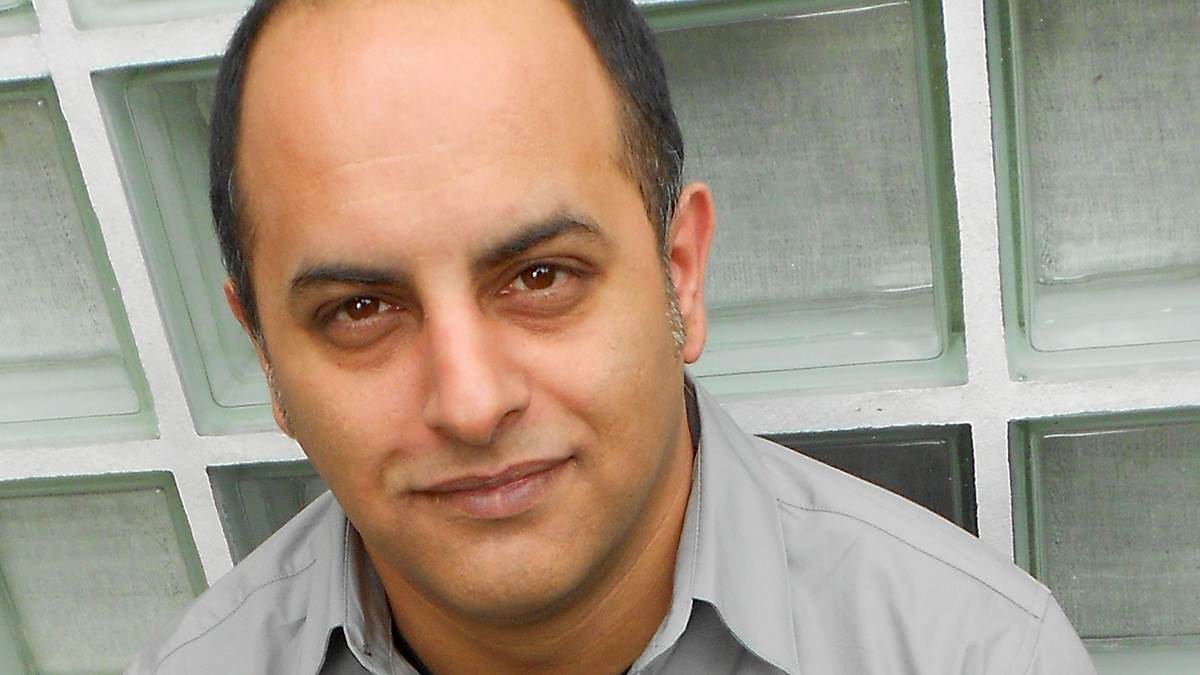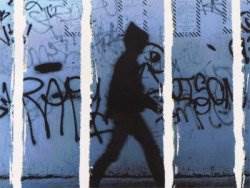What makes a good teen/YA novel?
Published on: 05 April 2012 Author: Bali Rai
The critically acclaimed writer of books such as Rani & Sukh, The Last Taboo and Killing Honour Bali Rai became our sixth Writer in Residence back in 2012. In this blog Bali was joined by Melvin Burgess, Anne Cassidy, Ali Lewis and Matt Whyman to discuss what makes a good teen novel.

Time and again I get asked what makes a great teen novel. I know what I think but I thought it might be interesting to ask some of my fellow authors for their thoughts. So, here's what Melvin Burgess, Anne Cassidy, Ali Lewis and Matt Whyman had to say...
Matt, in your opinion, is a good young adult (YA) novel for or about teenagers?
A good YA novel isn't written for teenagers. Doing so is a shortcut to patronising the reader. It can leave them feeling disconnected. To my mind, the best YA is about teenagers, written in whatever voice best serves the story. Get that right and it appeals to readers across the generations.
And why teenagers in particular?
The teenage years are fuelled by a sense of optimism. You're not some wet-eyed kid, and nor are you a world-weary adult. It's a time for experimentation, testing limits, making mistakes and seeking to make your mark. I'd sooner explore what it means to be at this time of life than any other.
Boy Kills Man is about young people who live in South America. Is there a reason why you choose to explore life in other countries?
I'm drawn to write about growing up in regions of the world where life can be tough and difficult to survive. The sad fact is there are still some places where young people stand very little chance of becoming adults, at least not without being damaged after everything they've been through. But no matter bleak things become, the teen spirit always prevails.
Is there a difference between what we write about, as YA authors, and writers of adult characters?
We're talking about a sense of naivety, ambition and a refusal to give in against all the odds. You don't find this in adulthood, which is what makes the genre so exciting. There's no need to preach but let the truth speak for itself, even if a happy ending has to give way to a sense that the characters in the story did their level best under impossible circumstances - which can only be a lesson for us all.
Anne, tell us one thing that is vital for a great teenage novel.
A good story is crucial. Things need to happen to the characters and they need to happen from the very beginning. This is why I love writing crime fiction. At the beginning there is often a murder and the shape of the novel follows the discovery of the murderer. In my book Dead Time, Rose is on her way to meet her stepbrother who she hasn't seen for five years. While waiting at the station she witnesses the stabbing of a boy from her college who she hated. The novel then moves on as Rose is drawn into this murder.
How do you create your teen characters?
In order to create a teenager I often think back to my own teenage years. Then I fantasised about living in a flat away from my parents because I wanted control over my own life. In DEAD TIME Rose's mother disappeared five years before and she constantly dreams of finding her. Teenagers often want things they can't have and this is a trait that is present in many of my main characters.
Lots of true-to-life experiences then?
I like books that reflect reality so that is what I write. My books are set in London or occasionally in Norfolk or Essex. The teenagers are like those I see in the shops or on the bus. I read about crime in the newspapers and use those stories as a trigger for my own. I like to think every one of my books is a little slice of life in the twenty first century.
Ali – tell us what you think is important for a great teen novel.
I think any great book needs strong characters – they have to be engaging for me to keep turning the pages.
So you end up caring about them?
I have to care about them enough to want to find out more about what happens to them. I think this is particularly true of YA fiction. Making characters believable, interesting and engaging is so important. They need to have a distinctive voice - something that makes them unique and identifiable. Just as in 'real life' the people we're friends with are usually those we relate to the best - I think the same applies to characters in books.

What about the stories themselves?
Often YA books present their readers with an issue, it might be about drugs, or alcohol, under age sex etc... anything that could give rise to conflict or confrontation between characters, which might create a good plot line. In Everybody Jam some of the issues that helped create the plot were teenage pregnancy, death and racism. Good stories often create a dilemma for the reader, something which might challenge them and make them question their own beliefs and values. The kinds of stories that you can return to, or which you find yourself thinking about, perhaps even keep you up at night, long after you've read the last page and lent the book to a friend to read.
The thing is - no matter how strong the plot is, if I'm not reading about someone I'm interested in, who I can relate to, I won't care what's happening to them and I won't keep reading about them.
Melvin – what makes teen/YA books so great?
The truly wonderful thing about books is that they are just so varied. Films, and even TV, cost so much to make, they have to appeal to a really big audience, but even today, when publishers are desperate for big sellers, we still have an astonishing range of novels published. Somewhere out there, there's something for everyone. That means that rules are made to be broken – but I can think of a few that I would tend to stick to.
Which rules are they and why would you stick to them?
First, the book must respect the reader. No preaching, showing off or lecturing – people at school get too much of that already at school. Books are first of all entertainment; even when they are dealing with life and death issues, they still have to be a good read.
So, is there another rule – something budding teenage writers can use in their own work?
There's only one other rule I can think of, which is that the book should have a strong story. Adults novelists for a long time looked down their noses at story telling, but books for young people of all ages have always kept true to the power of the story - one reason, perhaps, why people of all ages love to read them.
So, outline that great teen/YA novel for us then.
The book will probably have young people in it, but other than, off you go. Funny, sad, desperate, fanciful, rude, strange, sexy, cute, silly, as you like it. Teenagers are like any other group of people – someone, somewhere, will like it, so long as it's well written.
That's fantastic – thank you Matt, Anne, Ali and Melvin for sharing your thoughts with us. Much appreciated!






Add a comment